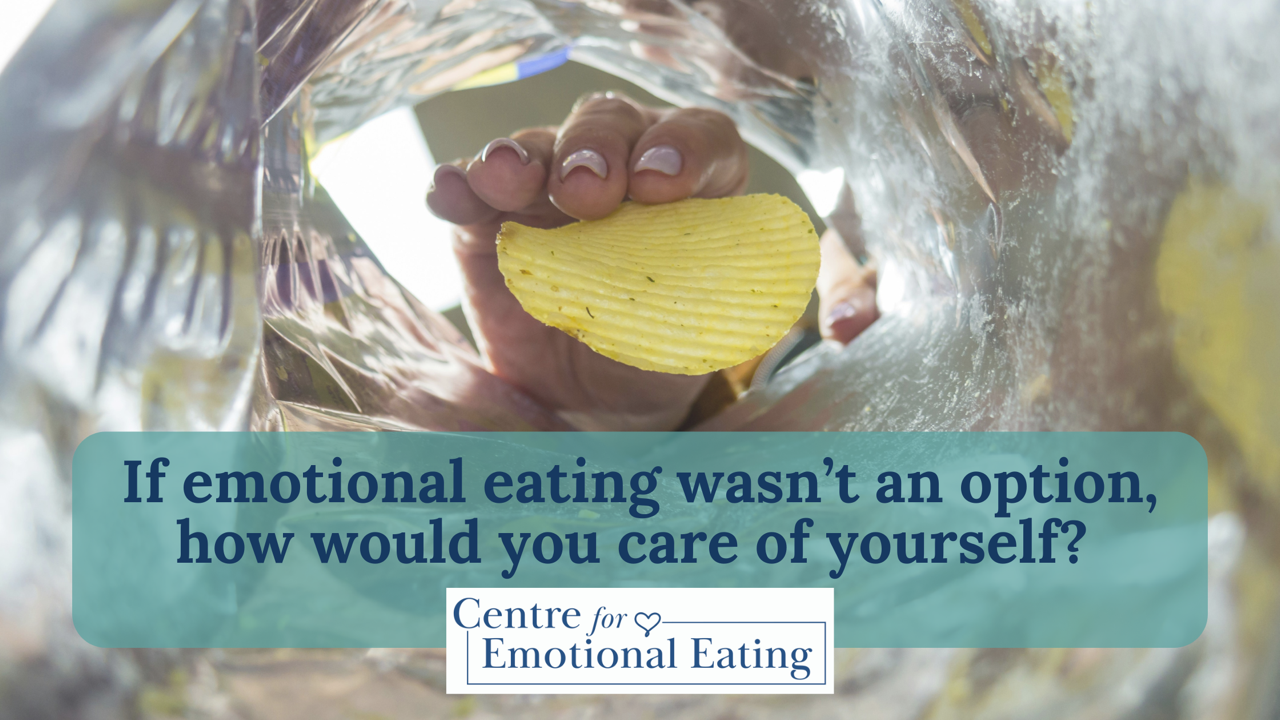BLOG
Find support not just for emotional eating, but all aspects of your well-being.
3 Ways Group Therapy Will Transform Your Emotional Eating

In addition to growing my one-on-one registered psychotherapy practice, over the years I ran emotional eating groups using pre-created content. I could see the power of the group concept, but the material wasn’t the right fit. So, I created The Quiet Craving, a program based on my experience of more than a decade of working with clients who emotionally eat and as a group leader.
I know that many people are hesitant about group therapy, especially when it comes to something as vulnerable as emotional eating. It is something that thrives when hidden and there is a societal belief that eating is “simple” and that you should “just be able to get a handle on it.” Bringing your experiences out in front of others can feel incredibly scary but, again and again, I have seen the transformational experience of group therapy for emotional eaters.
If you’re tired of emotional eating and intimidated by group therapy, this blog post is for you! Read through the powerful ways group therapy can trans...
Client Insight: “It felt scary when therapy started to change how I saw myself and others.”

Doing the work in therapy often comes with challenging the stories you’ve always told yourself. Over time we solidify ideas about ourselves, our relationships, and the world around us. This can sound like:
“I’m broken.”
“I’ll always be an emotional eater.”
“My mom did the best she could.”
But as you face these narratives about yourself, you’ll start to find the wiggle room, the space to start re-thinking how you see yourself and what that means for your identity. This can feel destabilizing! It is scary if you always thought of yourself or those in your life one way, only to unpack that things are different that they first appeared. It can feel easier to stick with the familiar way you’ve always understood your family and friends, and even yourself.
While this experience is uncomfortable, it is also a great sign that therapy is getting to the root of your experiences. Let’s flip the script: changing how you see the world is like taking off a pair of tinted sunglasses.
Let’s try t...
Client insight: “Emotional Eating is my Comfort… And it’s Comfortable”

After working with emotional eaters for more than a decade, it is common to hear from clients that they don’t understand why they keep emotionally eating when it makes them feel terrible.
They can’t stand the overfull feeling after a binge.
They hate hiding from others and sneaking food.
They judge their worth by thinking they need more willpower to get their shit together.
They dread the judgement, guilt, and self-hatred that comes after eating.
They’re ashamed of how much money they spend on food.
For something that is supposed to bring a sense of comfort, these things sound like anything but! So, why are you stuck in this emotional eating cycle when you know it doesn’t feel good? It isn’t about cravings for specific foods or an “addiction to sugar.”
It is because emotional eating is familiar. It is the predictability, even the negative side of it, that offers you a sense of comfort. You know what to expect and our brains are wired to go with what we know. Yup, even when what ...
Client Insight: “I spoke up when it felt therapy had stopped working for me—and it made all the difference!”

There are so many different types of therapy, it can be overwhelming when you’re starting out. While there are definitely things to consider when choosing a therapist, identifying when a method of therapy isn’t working is a powerful way to make progress on your mental health journey.
What does it look like when therapy isn’t working for you? It is important to remember that your ‘aim’ in therapy can be a moving goal post. For example, you might start therapy to manage your depression but after dealing with the immediate symptoms you and your therapist might begin focusing on your childhood experiences that are informing your current behaviour. This is normal!
But you shouldn’t be leaving your sessions feeling frustrated. While a therapy ‘hangover’ is expected, you should feel at least slight relief at being heard and supported through a session. It can be helpful to journal or just jot down how you feel after a session to keep track of your progress and new coping tools you’ve learnt...
How to Find a Good Therapist (that’s a fit for you!)

Spending 50, or more, minutes opening up to a therapist can feel intense! It is understandable that you’d want to feel comfortable when talking about your emotions and trauma. Here are 4 things to consider when you’re searching for a mental health professional to work with:
Identify your needs
It can get confusing fast when looking at types of therapy, what heck is Conative-behavioural Theory or Eye Movement Desensitization and Reprocessing? There is no need to deep dive into research about types of therapy (unless you want to!), but consider reading websites and blurbs about therapists to narrow down the support you’re looking for. For example, if you suffer from anxiety, then make sure it’s mentioned as an area of expertise in their bio. If you’re in Canada, try Psychology Today to search for a therapist or the American Psychology Association if you’re in the US.
Consider your needs
Do you feel shy about opening up or maybe you prefer hearing that others are experiencing similar ...


